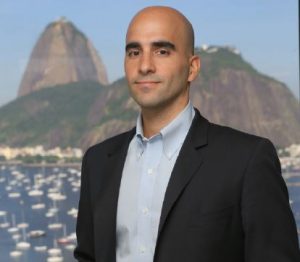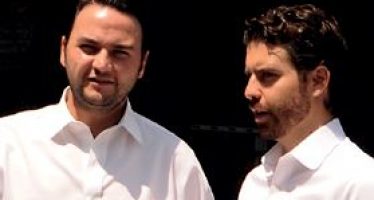PetroRio: Strategy is How You Play the Game, but Determination Helps You Win

CEO: Nelson Queiroz Tanure
PetroRio, Brazil’s largest independent oil and gas company, went from a pre-operational concession holder to a high-margin cash-generating oil producer with a clear strategy: to acquire and redevelop mature fields, while generating funds to acquire new assets.
PetroRio was established in 2015 and made its largest acquisitions in late 2018 and early 2019. It now has a combined 70 percent stake in the Frade field in the Campos Basin, on the continental shelf of the State of Rio de Janeiro. The Brazilian company took over as operator of the producing field from US giant Chevron, which at the time was also the asset’s largest shareholder.
At its foundation, PetroRio set up a strong business development team of local and foreign professionals with wide international experience in mergers and acquisitions.
Led by CEO Nelson Queiroz Tanure, PetroRio set up an ambitious goal of increasing total oil production to 100,000 barrels per day. The company was determined to engage Frade’s interest holders and negotiated for months with two sellers. While remaining committed and dedicated to the transaction, PetroRio succeeded in purchasing the relevant Frade field stake.
The team used an innovative strategy to split the acquisition into different phases and include conditions to certain changes in corporate structure. It followed bilateral negotiations with the two parent companies as ultimate stakeholders.
In October 2018, PetroRio signed the acquisition of an 18.26 percent non-operator stake held by Frade Japão Petróleo, belonging to Japan’s largest oil and gas company, Inpex.
Three months later, in January 2019, PetroRio announced the acquisition of Chevron Brasil Upstream Frade, which held a 51.74 percent stake in the concession and operation of Frade field, bringing the total interest in concession to 70%. Brazilian giant Petrobras holds the remaining 30% non-operating interest in the Field.
In both cases, the tactical approach was to separately acquire subsidiaries (at a company level) that held positions in the concession and in the FPSO operating in the field, streamlining the process and simplifying Brazilian regulatory approval.
“The addition of these significant stakes in Frade is cash-accretive, reaffirms our strategy of growth through acquisition and redevelopment of producing fields, and represents a diversification of our portfolio and sources of revenue”, says Tanure.
With the transaction, PetroRio will be adding to its production an excess of 14,000 barrels per day. In all, the company’s production will add up to 25,000 barrels of oil and gas equivalent per day — more than twice the production reported in December 2018 — making it the largest independent oil and gas company in Brazil.
In addition to expanding production, the business had an even stronger impact on the company’s reserves, which increased from 26MM barrels — from the assets Polvo and Manati — to a total 87 million barrels of oil equivalent (including Frade).
From an operational standpoint, the proximity between the Polvo and Frade fields allows for relevant logistics synergies, in line with the company’s strategic pillar of cost-reduction. PetroRio’s management believes that the margins of assets currently operated by the company will increase significantly, leading to new levels of cash generation and funding capacity for other projects under negotiation.
The Frade transaction is a solid example of PetroRio’s eagerness to grow. The company is in constant lookout for opportunities — in Brazil and abroad — that are in-line with its way of doing business. It has a strong track record of striving for excellence and operational safety, cost rationalisation, solid financial planning and the use of innovative financing instruments, such as the recent funding obtained from the Brazilian Innovation Agency (FINEP), from Chinese giant ICBC, and from global bank Citibank.
PetroRio’s CFO and Business Development Officer Roberto Monteiro explains, “We know we are on the right track. The company has been growing in a sound and sustainable manner while still having a very promising future. We currently have more accretive projects than our funding capacity can deliver”.
“The acquisition of Frade is an important step to further strengthen PetroRio’s presence in the oil and gas sector”, says Monteiro. “We are very optimistic about the results that are yet to come.”
PetroRio’s CEO, Nelson Queiroz Tanure, hints on new acquisitions. “We are always looking for assets which have, as main qualities, sustainability, organic growth opportunities, and attractive returns for our shareholders.”
The company is preparing roadshows for US and European investors to gain support for new acquisitions and for investments to redevelop its producing fields through interventions and drilling campaigns. The focus is on increasing productivity and the economic life of fields such as Polvo and Frade, which have new drilling campaigns lined up for this year, 2020 and 2021.
The addition of the operating interest in the Frade field is fully aligned with the company’s investment philosophy, which is centred in the acquisition of cash-generating, producing assets, and in the redevelopment of mature fields to extend their useful life. “We are pioneers of this strategy in Brazil,” says Tanure.
The company’s senior executives and the business development and finance teams hope to announce updates to PetroRio’s expansion plans in the near future.
You may have an interest in also reading…
CFI.co Meets the Management Team: Fideicomiso Hipotecario
Fideicomiso Hipotecario – FHipo for short – is a mortgage REIT created for the sole purpose of acquiring, originating, co-participating,
CFI.co Meets the Group CEO of KBC: Johan Thijs
KBC Group barrelled ahead in the wake of the financial crisis and hasn’t looked back since. What explains your remarkable
UniCredit’s Roberta Marracino: Banking with a Social Impact
Determined to help shape the post-pandemic ‘new normal’, UniCredit is stepping on the accelerator to redouble its efforts at sparking


















































































